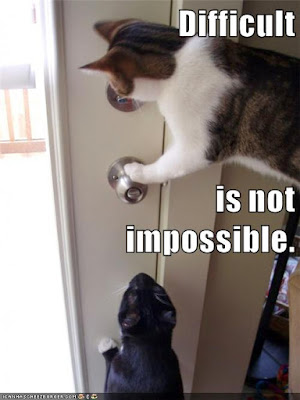Article #1: How to Get Past Negativity Bias in Order to Hardwire Positive Experiences by Katrina Schwartz
I chose to read this article because I don't really know what "negativity bias" is. It sounds like being negative in your brain, instead of thinking positively. I tend to be a negative nancy, so I'll see if this article has any tricks for me.
So! I see that I was sort of correct. According to this article, there are ways to rewire your brain thinking patterns. The brain is moldable! This scientist, Rick Hanson, argues that students can develop motivation and think of themselves as more active learners. Maybe students can become more positive in their outlook on learning? Apparently, the brain is used to putting negative emotions (or input) in front of positive things (negativity bias). Humans focus on bad news, not positive news. We should try to train our brains to dwell on positives instead. So basically, it's all about mindfulness. Being aware of our your brain handles information, and how to change those pathways. It's cool that it is possible to change the way your mind processes information. Maybe for this class and in the future, when we get feedback, it would help to not think about the negative information as much as the "good jobs" that come in a critique. Or we could focus on how much fun, enjoyment we got out of the activity, despite the negative feedback we might have received.
Article #2: Why Do So Many Managers Avoid Giving Praise? by Jack Zenger and Joseph Folkman
This one I read because of work! I've been having some issues at work lately, mostly with the management team. I'm a server, so it's a high stress job, and all they do is criticize the workers!! They never give any positive feedback or praise, and it drives me crazy. I almost want to send them this article.
What a great quote: "giving only negative feedback diminishes a leader's effectiveness in the eyes of others and does not have the effect they believe it has". I wish I could tattoo this on my body.
I also like that the article mentions that the praise needs to be specific and soon after the incident! So when writing feedback in this class (and to my future students), I need to find and tell students what exactly they are doing that is good! Not just a general "good job" type of statement. I think that this is a hard skill to learn, especially since brains are wired to see and focus on the negatives. I would love to send this article to my bosses, but I can't be petty :(

Comments
Post a Comment